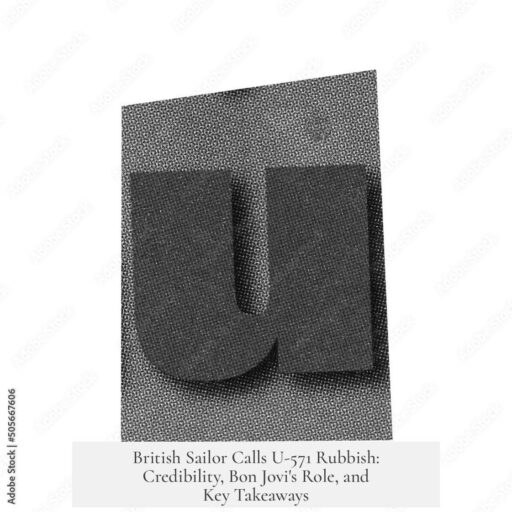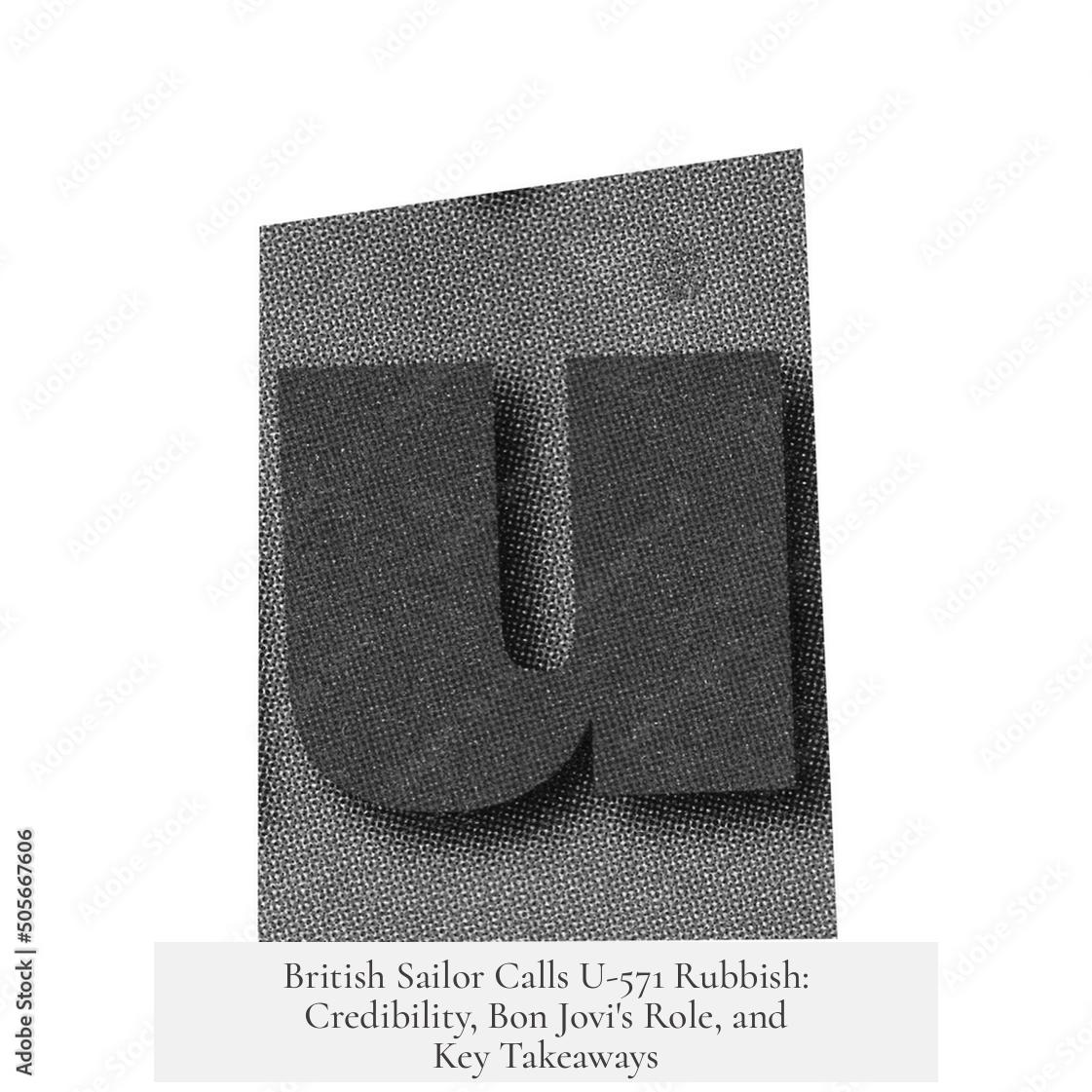U-571 receives harsh criticism mainly for its Americanized portrayal of World War II events, which many consider a distortion. The film depicts an American crew capturing a German Enigma machine, a plot point that contradicts historical records where British forces accomplished this feat. This shift sparks strong disapproval from viewers, especially those aware of wartime history, who see it as an unnecessary rewrite favoring American heroism.
Critics often compare U-571 unfavorably with the German film Das Boot. Das Boot garners praise for its realistic atmosphere, detailed submarine conditions, and faithful representation of German sailors’ experiences during the war. While some question the complete historical accuracy of Das Boot, it is widely regarded as the superior submarine movie due to its authenticity and storytelling depth.
The Americanization debate remains central to the backlash against U-571. Many who refuse to watch the film cite this issue as the primary reason. The movie’s tendency to replace authentic events with an American-centric narrative undermines the contributions of British forces and distorts the historical context.
Questions arise regarding the authenticity of some reviewers claiming personal World War II connections, considering the age they would be today if they served during that period. Such skepticism does not lessen the valid historical criticisms but suggests careful scrutiny of anecdotal claims.
On a lighter note, the film features a cameo by John Francis Bongiovi Jr., better known as Bon Jovi, which surprises some viewers. This unexpected inclusion does not impact the film’s historical criticisms but adds an unusual pop culture element to the production.
- U-571 faces criticism for rewriting WWII history to favor American characters.
- Das Boot is generally viewed as a more authentic and superior submarine film.
- British efforts in capturing the Enigma machine are overshadowed in U-571’s plot.
- Questions exist about the credibility of some personal wartime accounts related to reviews.
- Bon Jovi’s cameo adds an unexpected cultural twist to the film.
[Review] U-571 is absolute RUBBISH! Peeved British sailor sets things straight
![[Review] U-571 is absolute RUBBISH! Peeved British sailor sets things straight](https://vintage.tn/wp-content/uploads/2025/06/648_u_571_accuracy_critique_review_u.jpg)
U-571 is absolute RUBBISH! Yes, that’s the bold, no-holds-barred verdict from a British sailor with some serious WWII street cred—or at least a fierce passion for historical integrity. If you’ve seen U-571, especially as someone who cares about true wartime stories, you might already feel the sting. But what exactly makes this submarine thriller so reviled by some? Let’s deep-dive into the nitty-gritty of why this film irks hardcore history buffs and die-hard fans of submarine warfare cinema alike.
First off, let’s talk about the biggest and most consistent gripe: the rampant Americanization of the story. To put it plainly, U-571 is basically a Hollywood remake of Das Boot, but with a heavily American twist. This isn’t just casual reimagining; it rewrites the actual history behind a famous WWII event, swapping the rightful British heroes with American counterparts. For many, including this fiery British commentator, that’s more than a little insulting.
Imagine sitting in a theater expecting a gritty submarine saga, only to realize it’s basically a cheerleading session for USA USA USA. The reviewer says, “I saw this in the theater and realized it was a Hollywood remake of Das Boot but with AMERICANS USA USA.” That’s quite the reveal, and it’s hardly flattering to the film’s claim of authenticity. It felt like a slap in the face for British naval history.
Indeed, some viewers refused to watch it altogether because of its “Americanisation.” This raises an important question: how far can Hollywood stretch historical facts before it stops being entertainment and starts being revisionist fantasy? The line, it seems, got erased here.
The Das Boot Benchmark
Comparisons with Das Boot are inevitable and, frankly, unavoidable. When you put these two submarine films side by side, the gulf in tone, realism, and respect for history is – well, vast.
The British reviewer admits he’s unsure about Das Boot’s historical accuracy, but that it’s “the better submarine movie.” That says a lot. Das Boot puts you in the claustrophobic tension of a WWII German U-boat and delivers a raw, realistic portrayal. It’s not about glorifying one side or the other; it’s about the intensity of warfare under the sea. It tells a story that feels genuine, uncompromised, and respectful of the real men (and horrors) involved.
U-571, on the other hand, feels like a patriotic rewrite that sacrifices belief for bombast. Submarines clack, depth charges boom, but the film’s core message misses the mark: it doesn’t honor history; it bends it for theatrical effect.
Is the Reviewer for Real? A Question of Credibility
Now, truth be told, one might raise an eyebrow at the source of this scathing critique. The reviewer pins himself as a British sailor from WWII. But if taken literally, that would make him roughly 100+ years old today! A colorful statement, yes, but one that invites questions about historical authenticity versus passionate opinion.
Should that dampen the points made? Not necessarily. History—and its love affairs with cinema—always invites vigorous debate. Whether or not the critic really served in the Royal Navy during the war, their perspective highlights an important fact: honesty and respect for history matter deeply to those connected to it.
Wait, Was Bon Jovi Actually in U-571?

Here’s a fun tidbit that might surprise you: Bon Jovi, aka John Francis Bongiovi Jr., makes a cameo in the film! How often do you hear a rock legend casually pop up as part of a WWII sub flick? The reviewer uses this to poke fun at the film’s very American flavor. “How dare you trash a movie that has noted American (New Jersey native, I believe) historian John Francis Bongiovi Jr making a cameo appearance?” Well, fair enough. But a cameo appearance by a famous musician doesn’t inoculate a movie from criticism over historical liberties.
If anything, this detail only underscores Hollywood’s penchant for blending pop culture and history in ways that may please marketing more than memoriam. It’s almost ironic that a movie so proud of flaunting American stars still ends up as a disappointment for history purists.
So What Can We Take Away from This?
There’s one clear lesson here: history in Hollywood films is a delicate beast. When it skews too far from reality—especially in matters as serious as WWII submarine warfare—it loses the respect of those who understand, lived, or carefully research the events.
- Don’t trust every story Hollywood tells about history, especially if it feels like a cheer for national pride over truth.
- Watch Das Boot if you want a submarine drama that respects its source. It’s far from perfect, but it aims for authenticity.
- Beware of movies with star-studded cameos that might just distract from poor storytelling.
In the end, U-571 serves as a cautionary tale about misrepresenting history for entertainment’s sake. It reminds us to be vigilant about the stories that get told, especially when they replace true heroes with convenient liberties. So, next time patriotic submarine movies come knocking, ask yourself: is this a tribute or just another Hollywood spectacle? The British sailor, peeved and proud, has already made his choice.



